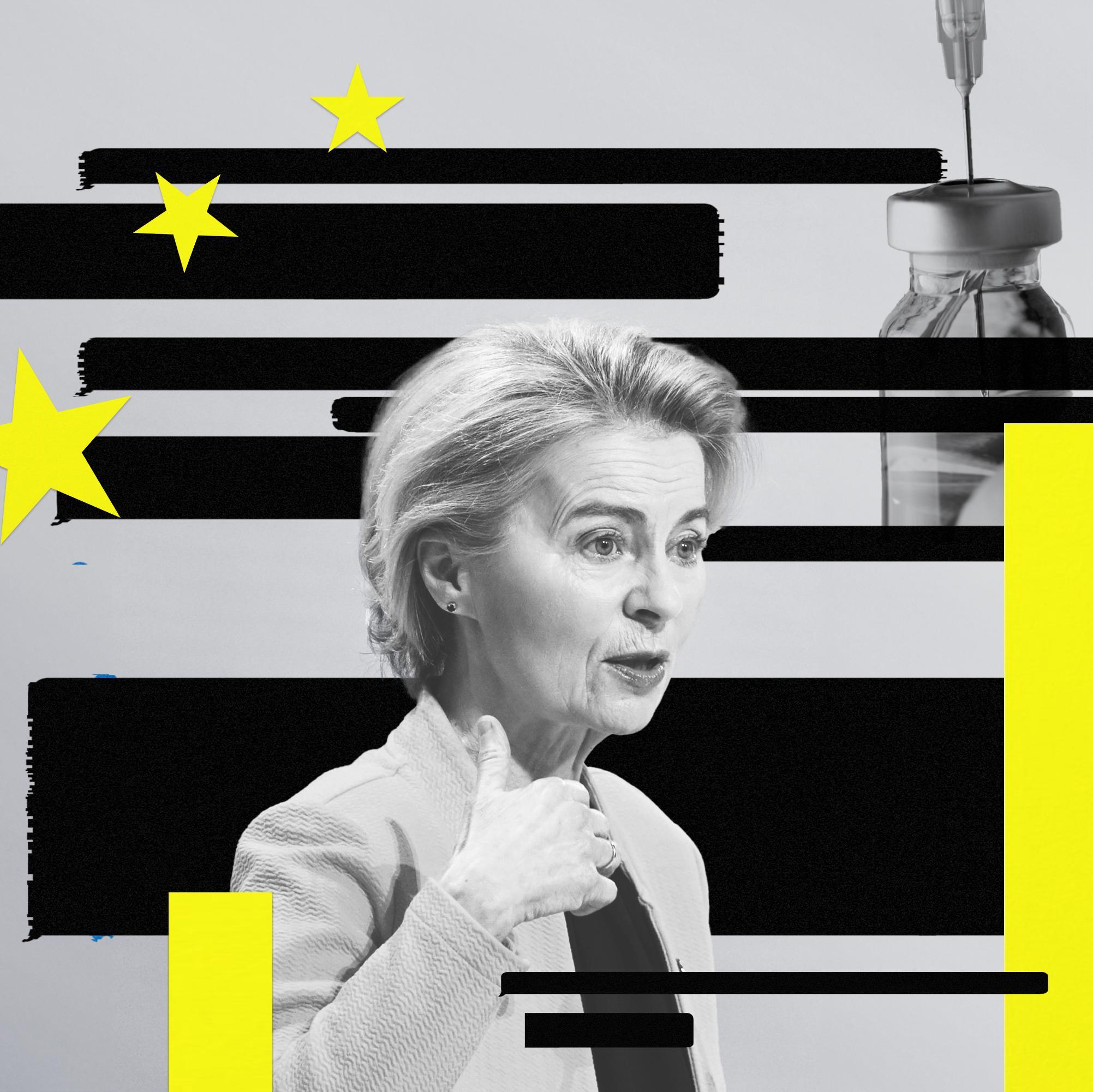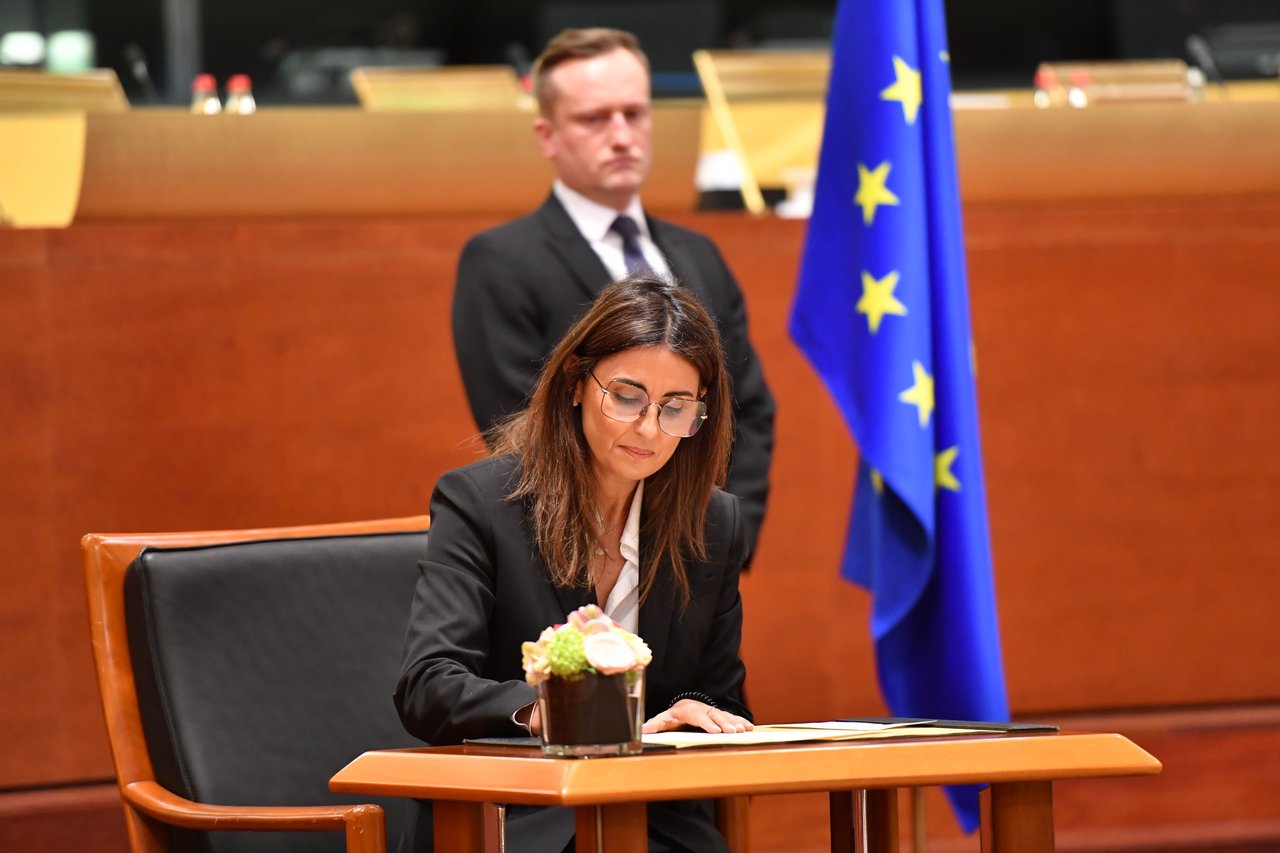Newsletter
Secrecy Tracker: Pfizergate wait, EU court grey zones and the new Ombudsman
Dear readers,
We are back with a new instalment of Secrecy Tracker – your regular update on what the EU institutions prefer to keep under wraps.
I'm Alexander Fanta from Follow the Money, and I co-wrote this edition with my colleagues Pascal Hansens of Investigate Europe and Elena Sánchez Nicolás, editor-in-chief of EUobserver.
This issue dives into the recent Pfizergate ruling and its aftermath, transparency at the Court of Justice of the European Union, the new Ombudsman's plans, and journalists' push for more transparency.
Not signed up yet? Join here: Follow the Money - EUobserver - Investigate Europe.

Waity, waity, Pfizergate-y
It was a spectacular rebuke that landed on Brussels with a boom – but a month after the Pfizergate ruling, in which the General Court chastised the Commission for President Ursula von der Leyen's lack of transparency about her texts with Pfizer CEO Albert Bourla, we are still waiting for the dust to settle.
On the day of the verdict, the Commission announced it would "closely study" the ruling and send the plaintiff, journalist Matina Stevis-Gridneff of the New York Times, a new decision on her request for the texts. This new decision must clearly explain what steps the Commission has taken to search for the texts, according to the court ruling, and thus finally answer the question of whether they still exist.
Alas, the Commission is in no rush to respond. A spokesperson told Follow the Money that they did "not have a specific timeline" for replying to the Times. A separate request filed by the author on the day of the ruling is still pending, and the Commission has generously extended its own time limit for a reply until June 27.
So what's the point of the ruling, if we still don't know what happened to the texts? The judges of the Grand Chamber can not order the Commission to release any document, and, to their frustration, they were not even able to compel the Commission President to reveal what happened to them.
But still, the ruling has left a mark on European transparency law. In paragraph 60, the judges recognised that if an institution cannot credibly claim a document does not exist, (as the Commission initially did with the Pfizer texts), it is under an obligation to "provide plausible explanations enabling the applicant for access – as well as the Court – to understand why the requested documents could not be found."
In short: the Commission's entire legal argument – essentially "there are no texts because we did not archive them" – came tumbling down. From now on, if there is even a shred of evidence of any text or other document, the Commission must plausibly explain how it searched for it and where it ended up. A small victory, perhaps, but not nothing.

On transparency, the EU Court leads…by exception
While the EU Court can be a champion of transparency when it comes to others – see Pfizergate – it seems less enthusiastic about applying the same standards to itself. For instance, it skips the EU transparency register (like the European Central Bank and others by the way). That means there is no public record of meetings between judges, legal secretaries, lobbyists, law firms, or any other interest group representatives.
The reason? "The Court is a judicial institution, its activity differs substantially from that of the other EU institutions as it is not a law-maker but rather an interpreter of the law", Juan Carlos González Álvarez, head of press and information at the CJEU, told Investigate Europe. In other words, it's not a political body, but a judicial one.
So judges "perform their mission independently and impartially," according to Gonzalez Álvarez. And that's it – no further accountability, no public scrutiny. Never mind that the Treaty of the European Union says that all EU institutions should take decisions "as openly as possible."
"The Court of Justice remains exempt from scrutiny of lobbying activities, the institution paradoxically appearing to be protected from the openness it is supposed to guarantee," said Alberto Alemanno, a prominent professor in EU law and in transparency.
In a recent article, the Italian scholar criticised the shadowy role of amicus curiae briefs. These informal notes from third parties, including law firms with a vested interest in the outcome of a case, are not legally binding, but they can sway the Court's thinking. And since the EU judiciary does not officially accept them, there is no record. Clerks handle these letters behind closed doors. "It all happens in a grey, if not black, zone," Alemanno added.
In the same vein, the Court does not take part in the full membership of the EU’s new ethics body, citing judicial independence. As recital 5 puts it clearly, its role is merely "observer."
The judicial institution defends itself by pointing to recent improvements: live-streamed hearings, rulings, and written submissions that are now made public, unless the author objects.
But much still happens in the twilight zone of the Kirchberg Plateau, and judges seem likely to continue floating above basic transparency rules.

New EU ombudsman pledges transparency, targets revolving doors first
Three months into the job, new EU Ombudsman Teresa Anjinho has already made an appearance at the Dataharvest investigative journalism conference – and showed openness to listening to journalists about their daily struggles with institutional secrecy.
Given that most complaints reaching her office concern access to documents (with 42% of cases in 2024 related to transparency and accountability), the Portuguese legal expert has pledged to make transparency a top priority.
Anjinho has already met with key EU leaders, including the President of the European Parliament, Roberta Metsola, European Council President Antonio Costa, and Commission President Ursula von der Leyen. With the latter, Anjinho raised contentious issues such as the worrying and constant delays in access to documents, the need for more inclusive decision-making, and her first own-initiative probe into the "revolving doors" issue.
That investigation, which focuses on EU officials moving into private sector roles, is expected to wrap by early 2026. On this issue, Anjinho is clear: the public has a right to know where high-ranking officials go next – and that is not the case today.
When asked about her meeting with von der Leyen, Anjinho told EUobserver that it was a "frank discussion" during which she stressed the need to comply with court rulings in transparency cases, without getting into specifics like the recent Pfizergate ruling (see above) or other ongoing cases.
She also said that von der Leyen "acknowledged" that there are problems in the delays with access to documents, but made no concrete promises. She was more in "hearing mode," Anjinho said.
"So it's important to acknowledge it. And when it comes to adaptability, the solution would be for the commission to adapt to new times," she added.
Journalists can't wait forever, Commission told
Earlier this year, more than 150 journalists from across Europe – including big names from the Brussels press corps and prominent investigative reporters – voiced their frustration over long delays to access-to-documents requests and heavy redactions, in an open letter to the Commission.
In late May, journalists Jean Comte of MLEX and the main author of this newsletter – who had initiated the letter – met with Commission officials to discuss their grievances and possible solutions to improve public access.
We asked the Commission to inform requesters in advance about possible delays and give a detailed reason for them (as required by law). Other suggestions included telling applicants which officials are responsible for their request, and sharing contact details to make it easier to get in touch about any problems.
We also requested the Commission to publish its internal guidance on case law – a document it currently keeps under wraps despite criticism from the European Ombudsman – to allow requesters to better understand how it interprets the rules.
The Commission – represented by Bernd Biervert, Jan Hendrik Dopheide and Laurence Bastin of the cabinet of Maroš Šefčovič, the Commission's vice-president in charge of transparency, as well as by the Secretariat-General's Mariusz Daca – listened politely to our suggestions, and emphasised its commitment to transparency (see also their official minutes of the meeting).
But so far, no concrete commitments have followed. We'll stay on it – and keep pushing.
For any suggestions, examples, or complaints, email [email protected], [email protected] or [email protected].